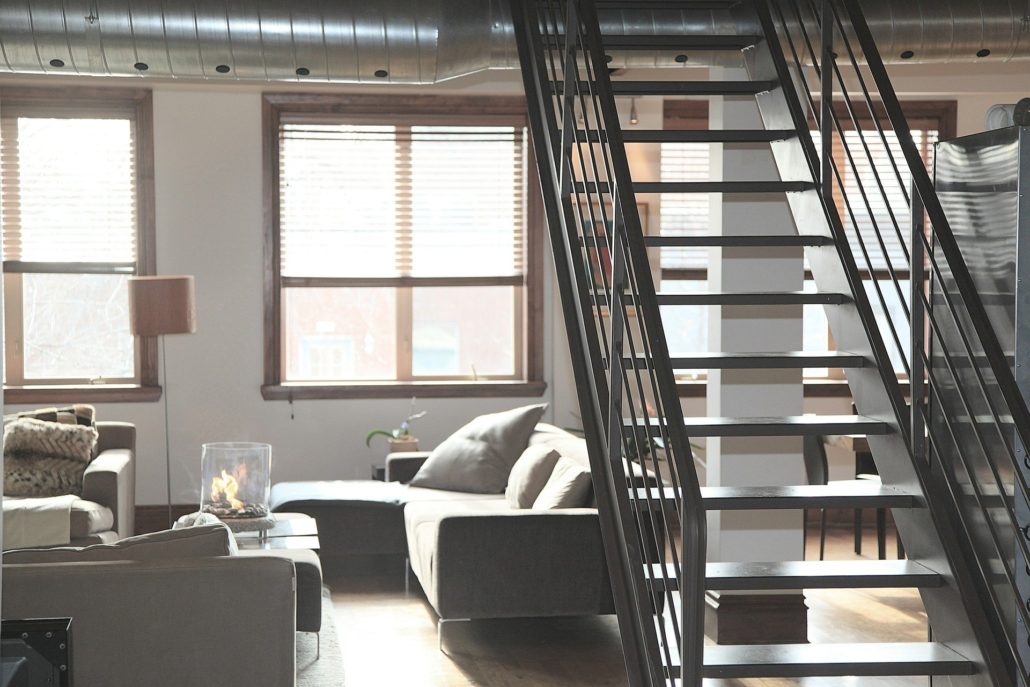Ultimate Guide | Off-Plan Property Investments
Following on from the success of our new build property ultimate guide, we delve deeper into the benefits, drawbacks and most frequently asked questions about off-plan property investments.
Investing in property is the preferred way for many investors to help secure a healthy financial future. When compared to having your cash sitting in a bank account achieving minimal interest, often losing money in real terms relative to inflation, it makes financial sense to invest in this secure asset. Even if you are not using savings to invest but rather borrowing the money, investing in property is a smart way to accumulate capital.
Off-plan property investing is one way that property investors can help achieve their financial goals, offering fantastic saving potential on built stock with impressive returns. This Ultimate Guide will help to guide you through the most important information regarding off plan investing, and help you determine if it is the right investment for you to pursue.
Guide contents:
- What are off-plan property investments?
- Why choose off-plan property?
- What are the benefits with off-plan investing?
- What are the disadvantages with off-plan investing?
- What are some frequently asked questions?
- What is the process of investing in off-plan property?
What are off-plan property investments?
Simply put, off-plan property investing is buying houses or flats before they are built. This often means that you purchase the property before construction starts, but it can also mean that properties are bought after the building phase has begun. Even when the construction project is well advanced, it still constitutes off-plan buying so long as the property is yet to be fully completed.
Off-plan properties are often bought at a discounted price compared to when they are at completion, offering investors a major incentive when deciding to invest off-plan.
Two fees are normally required at this stage:
- Reservation fee
- Deposit
A deposit typically ranges between 10-20% but can be as low as 5%.
Why choose off-plan property as your investment strategy?
Bricks and mortar property investments have proven the test of time. A tangible asset, property investments afford investors a reliable and flexible asset as part of any portfolio. No matter what the future holds as we transition into the digital age – what the World Economic Forum (WEF) calls the Fourth Industrial Revolution – you cannot digitise the roof over someone’s head. People will always need somewhere to live, and the demand for housing is growing as supply struggles to keep pace.
Off-plan investing offers potential growth that is greater than what is offered by conventional property investments. As the property is purchased prior to completion of the building project, sometimes before a single brick is laid and preferably where there is good market potential, rising prices in the local area can translate into lucrative returns for an investor. As prices rise whilst the property is under construction, once completed, it could be worth substantially more than what was paid for it, giving investors a great return.
With awareness in off-plan property investing gaining momentum in recent years, it’s not unusual to find entire developments sold out before building work has even been completed!
What are the benefits?
There are numerous benefits to off-plan investing, and a summary of the most important points will help interested investors understand what they can potentially gain when taking advantage of this investment option.
- Purchase below market price
- Value often higher when you take possession
- Choice of specific plots
- Benefits of a new build
Perhaps the most significant advantage of off-plan investing, and why so many investors are attracted to this strategy, is the opportunity to purchase purpose-built property at a discounted price. If you are in the position to purchase multiple units, developers often offer even greater discounts. As demand for housing is strong and supply is unable to keep up, house prices often rise during the construction phase of the deal.
As an incentive to investors and buyers, developers will often offer reduced prices for off-plan as there is an element of risk in buying properties that are not yet built. Furthermore, depending on your intentions with the property, there is also the added inconvenience of not yet being able to move in until the property is completed.

The value could be higher when you take possession
As mentioned, you typically get a discount on the purchase price. The value of your off-plan property should then be higher, perhaps considerably higher, by the time you move in or take possession. After a year or two, during which time the property is being built, the market price is likely to rise, therefore the investor benefits from capital growth. Crucially, since the price is locked-in at the point of reserving the plot, any rise in the market value will go to the purchaser.
Choice of specific plots
A further attraction to off-plan investing is being afforded the freedom to select which specific unit(s) you would like. Getting in early, you can choose the plot you think will offer the best long-term returns, the number of rooms and layout, specific features, and much more. And for those wanting to have speedy occupancy, say, to be tenanted and start receiving rental income, hassle-free furniture package deals can sometimes be obtained as part of the negotiations and is something that an investment introducer may be able to secure for you.
Benefits of a new build
Off-plan generally refers to properties not yet built, but it can also include refurbished builds. In either case, the off-plan property is advantageous because it will benefit from modern features like improved energy efficiency and compliance with environmentally sound requirements, something that is growing in importance as governments and industry leaders seek to reduce their carbon footprint and environmental impact. Moreover, you know that the property is built and designed to the latest standards and specifications.
What are the drawbacks?
Like with any investment opportunity, off-plan property comes with potential risk. There are, however, steps that can be taken to mitigate these risks. Careful research and planning will go a long way in reducing personal risk.
- Fall in market price
- Problems with securing a mortgage
- Delays in the project
Fall in market price
From the time that an off-plan property is chosen and reserved, and the deposit is paid, there’s the potential even if it is only low for the value of your investment to fall before the building project is completed. Buying off-plan properties in areas of positive house price growth helps to reduce the likelihood of a fall in value. Avoid buying at an adverse time, or location where prices are trending downward. Buying at the right time, in a location that property is seeing a rise in prices, should allow for healthy capital growth.
As touched on, research into the location of the development will help to gain insight into the potential of the investment. Is it located in an area where employment prospects are good, for example? Is there good infrastructure in place, like public transport and schools?
Problems with securing a mortgage
With off-plan developments often taking a minimum of one year to complete from conception, often longer, things can change in the mortgage market and, thus, availability can increase or decrease.
It’s important to note that mortgage offers will normally only be on the table for about six months meaning that, by the time the property is ready, you could potentially have paid your reservation fee but not be able to secure a mortgage. However, mortgage lenders often now offer longer periods with their deals on offer, with some offering the facility to apply for a six-month extension if it is during the initial offer period.
If the market is rising – which, remember, is a good time to buy, your chance of securing a mortgage is much greater since there will likely be more lenders entering the market than leaving. So long as you are well planned and communicating clearly with your mortgage lender, you should be fine.
Delays in the project
There’s always a chance that something can occur causing a delay in the construction project, even if only a small delay – COVID-19 being an unfortunate example here.
One security that off-plan buyers have with this, however, is that the contract should include a ‘long stop date’. This means that, if the developer is unable to complete the project by the designated date, you can choose to get your deposit back and exit the deal.
Delays are particularly unwelcome if the intention of the investment is to get tenants in as quickly as possible to start receiving rental income, for example. However, in favourable market conditions, delays can also work to the advantage of the investor because the price is already locked-in and therefore you will gain the benefit of rising prices without having to put up the rest of the cash.
What are some frequently asked questions?
As part of your research into a good off-plan property investment opportunity, it is prudent to ask several pertinent questions about the development project.
What is the developer’s track record and reputation like? A good place to start is looking into the developer’s completed past projects. You can easily ascertain if past projects match up to their marketing material, such as the photos that were used to advertise upcoming projects.
Another question that should be asked is about the developer’s customer satisfaction and performance levels. As well as reviewing industry body ratings, you can also look at online community groups or social media pages where this has been discussed. You should be able to gauge a good level of insight from past customer feedback. For example, what is being said about the quality of the past builds?
If buying through an investment company or introducer, a company that has been around for a long time is a good indication that they are doing the job right and that their clients are happy with the opportunities that they have been offered. Introducers can often secure better deals on behalf of their customers, so it is well worth enquiring about opportunities before attempting to go at it yourself.
Here at FJP Investment we are selective in the opportunities we introduce to our clients – we do the research to ensure the investment is secure and profitable. Click here to see the available investments we have on offer.
Another question you should ask is about the level of protection in place when buying your off-plan property. Start with asking if the developer has sufficient insurance to protect them if they go out of business or fail to complete the development. We can provide you with all the relevant information about the investment deal and the protection that comes with it.
Lastly, seek to learn if there are any issues around access. If, for example, your property ends up being one of the first completed in the development, make sure there will not be any access issues or disruption once you or a tenant has moved into the property.
What is the process of investing in off-plan property?
- Reservation fee
- Deposit and exchange of contracts
- Monitor progress
- Notice to complete
- Final payment
The process of buying off-plan property investments is quite straight forward. It starts with paying a reservation fee to reserve the plot you have carefully chosen. This is usually between £1,000 and £5,000.
Next, the appointed solicitor will follow the standard procedure of buying property, such as local searches and reviewing the contract. Once the parties are satisfied with this, the deposit is paid and then contracts are exchanged.
Now you can keep an eye on how the construction project is progressing. You can also use this time, as the completion of the project gets close, to shop around and arrange the mortgage.
Once the project has been completed, the developer will contact you and serve notice to complete. This will give you a specified period to finalise the purchase of the property. Once the remaining money owed is paid, the property then becomes yours.
Hopefully the above information will prove helpful in ascertaining whether an off-plan investment opportunity is right for you. If you would like more information on investing, get in touch with us via our contact page.
ARE YOU READY TO START INVESTING?
Subscribe to our mailing list now for exclusive deals, investment guides and
the latest information from the property market.
ARE YOU READY TO START INVESTING?
Subscribe to our mailing list now for exclusive deals, investment guides and the latest information from the property market.








